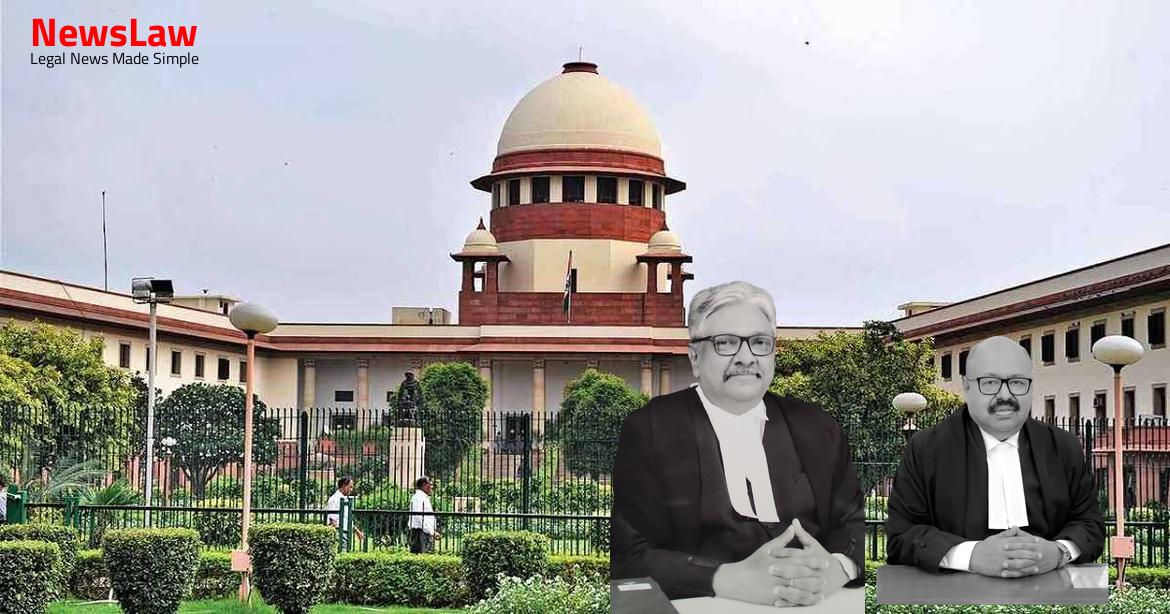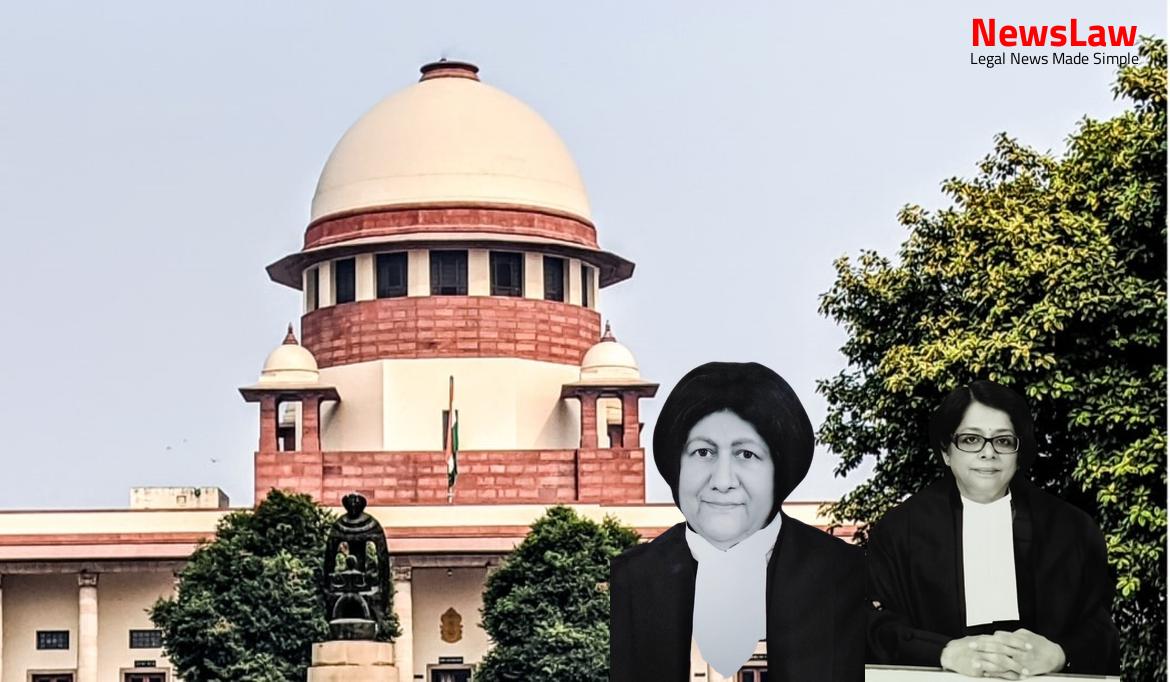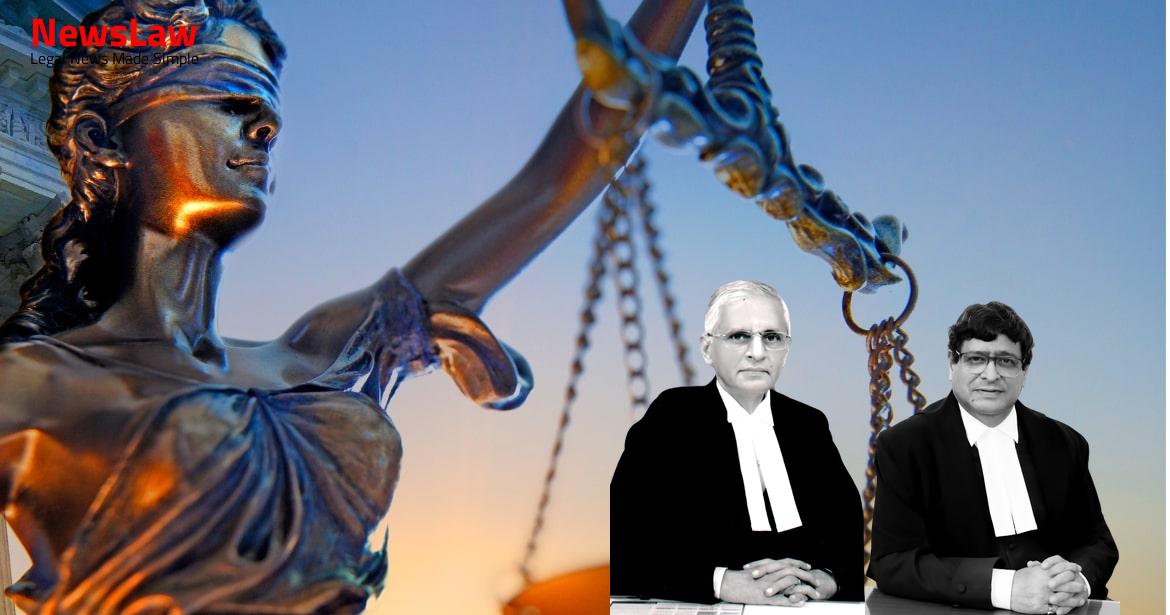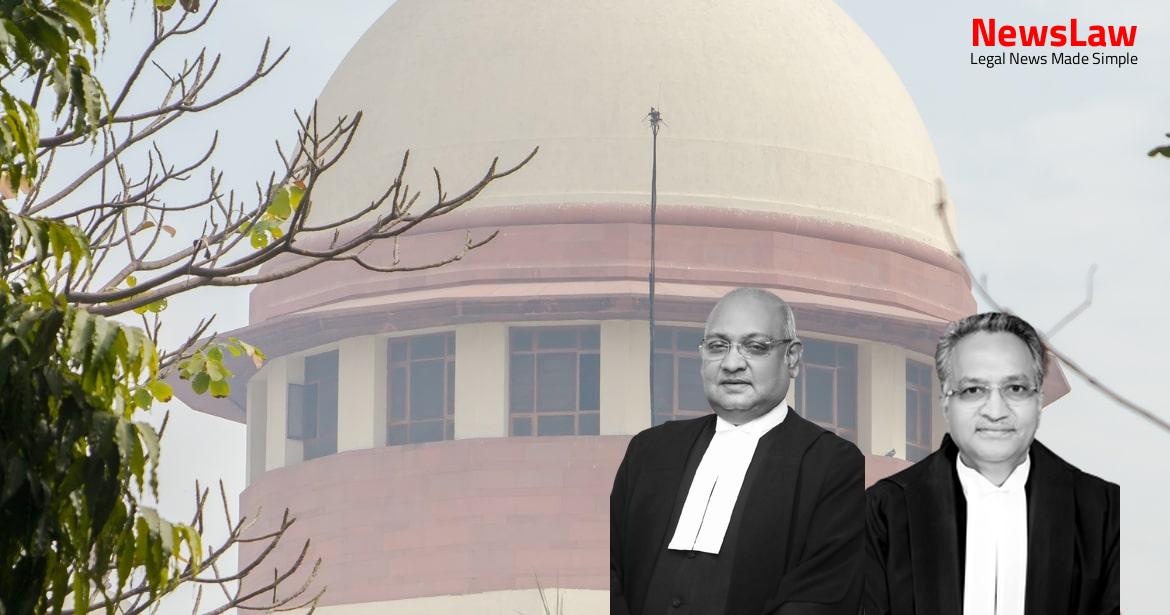Dive into the realm of legal analysis within a contempt case where the focus lies on due process and procedural fairness. Exploring the significance of adherence to legal protocols in ensuring justice is upheld. Stay tuned to grasp the essence of fair trials in the judicial system.
Facts
- The appellant was informed about Section 25 of the Act allowing hearings by the Chairman only.
- He was given freedom to express any alternatives or suggestions but did not do so.
- A draft charge was presented against the appellant for his behavior during a court session on 08.02.2019.
- The appellant was charged for not advancing arguments, humiliating opposing counsel, and creating a scene in court.
- Despite requests to calm down, the appellant continued his behavior, leading to a detailed order being passed.
- The appellant denied the charge, leading to further proceedings in the case.
- The additional Solicitor General was called to assist the Tribunal in the matter.
- The appellant insisted on in-camera proceedings to discuss matters concerning the Chairman, but did not reveal anything during the open court session.
Also Read: Interpretation of Custody in Contempt of Court Case
Arguments
- The appellant allegedly behaved inappropriately in court by requesting to have proceedings held in chambers to speak against the Chairman.
- When asked to reveal his statement only in chambers, the appellant refused to do so in open court.
- The Tribunal found support in Contempt of Courts (C.A.T.) Rules, 1992 and the judgment in Leila David v. State of Maharashtra & Ors. (2009) 10 SCC 337.
- The appellant’s counter affidavit denied the allegation of managing Judges and Benches of the Supreme Court.
- The appellant submitted documents related to the proceedings before the Tribunal.
- The Tribunal’s decision was based on the law laid down in Leila David v. State of Maharashtra & Ors. (2009) 10 SCC 337.
- The Tribunal was found to have adequate power, as per the Delhi High Court.
- The final order passed by the Tribunal in this case was considered sufficient, eliminating the need for interference by the High Court.
- The Tribunal was seen to have balanced the interest of justice by convicting the appellant but not sentencing him, instead letting him off with a warning.
- The Tribunal did not rush into proceedings immediately after the incident on 08.02.2019.
- The matter was brought to the Delhi High Court to determine whether the Chairman of the Tribunal could act under the Act.
Also Read: Enforcement of Arbitral Award – Court’s Legal Analysis
Analysis
- The issue arises from the denial of the charge on 08.02.2019.
- The appellant pleaded not guilty when the charge was framed on 10.02.2020.
- The Tribunal reserved judgment on 18.03.2020 without conducting a trial.
- The appellant insisted on the right to be tried, which was denied.
- The denial of trial poses a legal problem in this case.
- The Tribunal has the power to order attendance for cross-examination and examination of witnesses.
- Throwing a footwear in court proceedings is seen to scandalize the institution, not just the judge.
- The dignity and majesty of courts need to be upheld.
- Allegations and scandalous remarks made led to contempt proceedings.
- The Court affirmed the view of the Delhi High Court regarding contempt.
- In this case, the Tribunal erred in denying the right to be tried for the charge.
- The appellate denied the charges, leading to further contemptuous acts.
- The use of unseemly language and disrespect in court proceedings is condemned.
- A trial is deemed necessary in cases of contempt committed in the face of the Court.
- The judgment in Leila David is referred to regarding contempt proceedings.
- The Court recognized the presence of Articles 129 and 142 of the Constitution for jurisdiction.
- The Tribunal’s decision to deny trial was disputed by the appellant.
- Contempt in the face of the Court is defined as an incident witnessed by the Judges and others present.
- The appellant insisted on the trial to be conducted, despite opposing views.
- A person charged with contempt under Section 14 may be detained in custody or released on bail with specified conditions.
- The Administrative Tribunals Act, 1985 provides the Tribunal with jurisdiction similar to a High Court for contempt cases.
- Section 17 of the Act confers the powers of a High Court on the Tribunal in contempt matters.
- Section 14 outlines the procedure for contempt in the face of the Supreme Court or a High Court, including informing the person of the contempt charge, providing an opportunity for defense, taking evidence, and making a just order for punishment or discharge.
- The Tribunal can have a trial, and the respondent may plead guilty or not guilty, leading to framing of charges or dropping of proceedings.
- The Tribunal may follow the procedure for summary trials under Chapter XXI of the Code of Criminal Procedure in contempt cases, with provisions for affidavits, cross-examination, and examination of witnesses.
- Section 14 of the Contempt of Courts Act, 1971, provides the procedure for cases of criminal contempt in the face of the court.
- Summary proceedings can be taken by the courts in cases of deliberate and wilful contumacious incidents witnessed in public.
- The principle of not condemning a person unheard, especially in contempt of court cases, is statutory and essential.
- Individuals involved in contempt proceedings should be given the opportunity to show cause against the proposed action.
- The central issue had to be decided based on evidence despite the appellant’s denial of the charge.
- The order would have been upheld if there was evidence to support the charge against the appellant.
- The appeal is allowed due to the failure to follow the proper procedure for adducing evidence when there is a denial of the charge.
- Denial of the right to trial under Section 14(1)(c) of the Act and Rule 15 of the Rules resulted in a miscarriage of justice in this case.
- The Tribunal could not find support from the judgment of the Court due to the denial of the right to trial.
- As a result of the above discussion, the appellant succeeds in the appeal.
Also Read: Supreme Court’s Analysis on Advocates On Record System
Decision
- Shri Vikramjit Banerjee, Additional Solicitor General, assisted the court with fairness and legal positions
- The appeal has been allowed based on the signed reportable judgment
- Pending applications have been disposed of
- Impugned order has been set aside
- The appeal is allowed with specific observations
- Direction to forward the case to the Bar Council of India is no longer applicable
- The case was heard on the day of the judgement
- The charge is to be read and explained, and the Tribunal is to record the plea of the accused
Case Title: MEHMOOD PRACHA Vs. CENTRAL ADMINISTRATIVE TRIBUNAL (2022 INSC 813)
Case Number: Crl.A. No.-000892 / 2020



